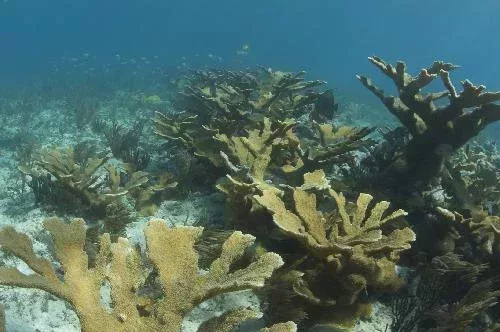The Government of France convened a High-Level Meeting of Ministers from the Wider Caribbean Region in recognition of global commitments (Sustainable Development Goal 14 on Oceans, Sustainable Development Goal 6 on Water and Sanitation, Improving Oceans Management and Reducing Pollution as part of the UN Environment #CleanSeas Campaign). This meeting, the first of its kind to be held in association with the Conference of Contracting Parties, helped gain additional political support for ratification and implementation of the Cartagena Convention and its Protocols, and adopted the Cayenne Statement (below):
We, the representatives of the Governments of the wider Caribbean region,
Aware that we share an ecologically rich marine environment which requires protection,
Also aware that the wider Caribbean region provides a valuable opportunity for sustainable development,
Reaffirming the key role of marine and coastal ecosystems of the wider Caribbean region and the fundamental value of natural resources in improving our ways of life and the attractiveness of our regions,
Recognizing that climate change affects the wider Caribbean region and that nature-based solutions provide a mean to address its impacts,
Recognizing the importance of the United Nations Sustainable Development Goals, the Aichi targets, the Paris Agreement on Climate Change,
Anchoring our work in the Cartagena Convention, in partnership with the Caribbean & North Brazil Shelf Large Marine Ecosystem Strategic Action Programme (CLME+ SAP),
- Hereby endeavour to take all appropriate measures to prevent, reduce and control marine pollution by exploring, learning from, and adopting, where applicable, best practices. We recognize in particular the need to address all forms of plastic pollution including microbeads. We value the positive contribution of international coalitions to combat those forms of pollution, in particular, the Global Partnership on Marine Litter.
- Aim to conserve the exceptional biodiversity of the wider Caribbean region, by:
a. Endeavouring to protect at least 10% of the marine environment by 2020 and to implement effective management measures for those areas;
b. Encouraging the establishment of measures to protect coral reefs, mangrove forests and sea grass beds, as called for by the Plan of Action set by the International Coral Reef Initiative (ICRI);
c. Encouraging the control of invasive species by improving monitoring, intervention capacity, and response;
d. Encouraging measures to reduce turtle bycatch and other damage to the marine fauna. - Will strengthen scientific cooperation, inter alia, through stakeholder networks, to address specific challenges encountered in the wider Caribbean region, such as protection of biodiversity, ocean acidification, and sargassum influx.
- Encourage measures aimed at minimizing pollution from ships at sea to protect biodiversity, in accordance with international instruments, including by:
a. Inviting interested stakeholders from the private sector to contribute to the objectives of the Convention,
b. Encouraging the ratification and implementation of the International Convention for the Control and Management of Ships’ Ballast Water and Sediments. - Encourage the ratification or accession by all Parties to the Cartagena Convention and its protocols.

